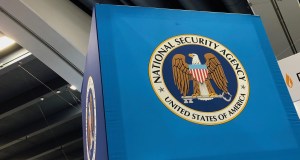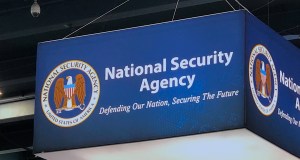Booz Allen Hamilton challenges ‘bizarre’ DOJ objections to EverWatch merger

Technology consulting firm Booz Allen Hamilton in a recent legal response aggressively criticized the Justice Department for blocking its proposed acquisition of EverWatch, a defense and intelligence contractor, claiming the DOJ’s antitrust concerns are “imaginative” and “overreaching.”
Booz Allen announced its plan to buy EverWatch in March for an undisclosed sum. Both companies currently compete for government contracts that provide operational modeling and simulation services to the National Security Agency (NSA).
The Justice Department in June filed an antitrust lawsuit alleging that Booz Allen’s acquisition of EverWatch could create a monopoly bidder for NSA defense contracts and therefore violated Section 1 of the Sherman Act, forcing the DOJ to try and veto the transaction.
“The Government’s arguments in support of its request are factually inaccurate and legally baseless. The Government’s narrative is not only inaccurate—it makes no sense,” Booz Allen wrote in a legal response filed earlier this month.
The company added that the Justice Department’s factual arguments were inaccurate and nonsensical.
“As a matter of basic math, the Government’s suggestion that the Proposed Transaction is a “scheme” to buy off competition for OD is bizarre,” Booz Allen wrote.
Prior to the merger agreement, Booz Allen and EverWatch competed head-to-head to win NSA contracts and then “Booz Allen decided to buy its only rival,” the Justice Department said when blocking the merger in June.
“Booz Allen’s agreement to acquire EverWatch imperils competition in a market that is vital to our national security,” said Jonathan Kanter, assistant attorney general within the Justice Department’s Antitrust Division at the time. “Both the acquisition agreement and the underlying transaction violate federal antitrust law.”
As the principal U.S. defense intelligence agency specializing in cryptology, signals intelligence and the interception of communications, NSA periodically issues government contracts to support its signals intelligence data missions.
Booz Allen in court documents pushed back on the DOJ’s claims and said the acquisition will not only benefit the company but also increase competition in the space and support the country’s national security goals.
“Booz Allen agreed to buy EverWatch because, together, the companies can better compete for more than a dozen government contracts potentially worth billions of dollars, many of which are now dominated by entrenched incumbents,” the company wrote in its legal response.
“Together, the parties can offer the intelligence community innovative solutions to meet evolving and dangerous threats from foreign enemies.Thus, far from threatening a “reduction in competition,” the Proposed Transaction will enhance competition, quicken innovation, and support our national security.”
Booz Allen and the Justice Department both referred FedScoop to their legal filings on the merger and declined to comment any further.






